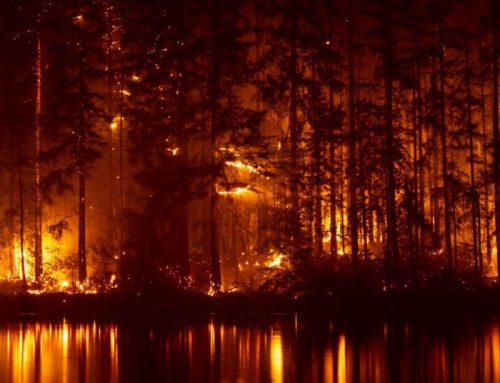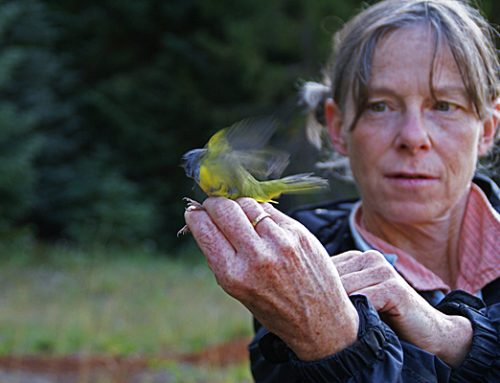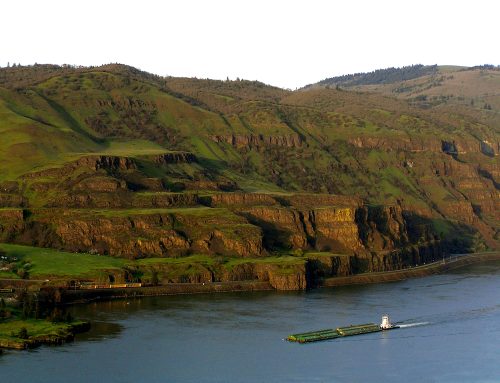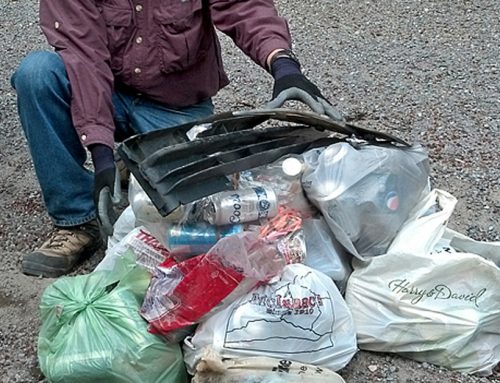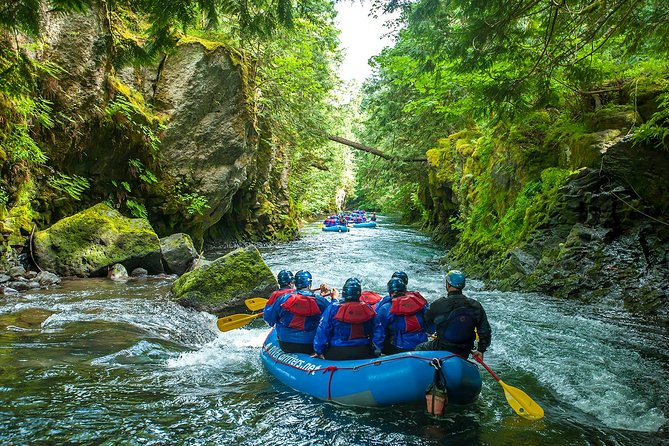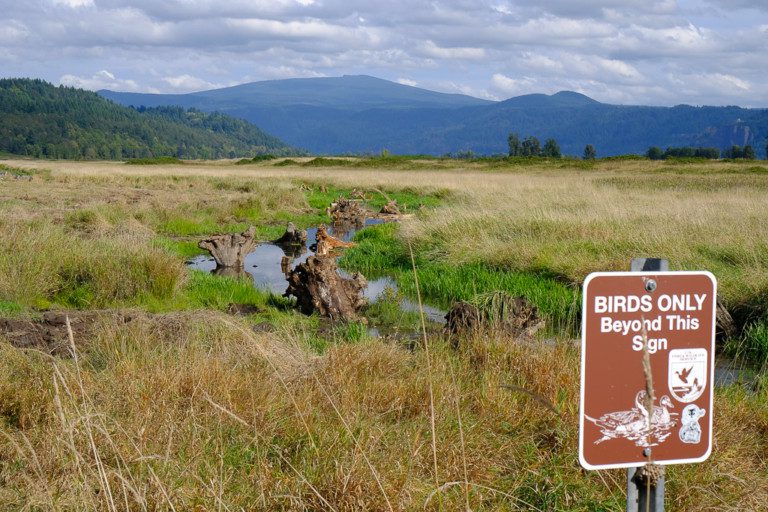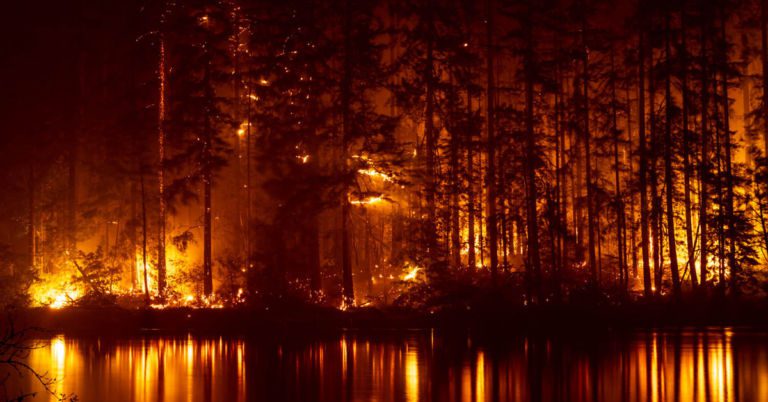Essay by Dac Collins. Jan. 24, 2018. From where the trail dead-ends, the Platt is hidden from view. There are just too many plants conspiring to keep it that way. Bearded old-growth firs, who prefer to keep their distance from the busyness of the river, collaborate with the alders and ferns nearer the waterline to weave a dense, green veil.
Heavy with ripe fruit this time of year, the salmonberry vines are in cahoots with the trees. Together they form a seemingly impenetrable thicket, a barrier of briars and intertwined branches that you have to want to pass through. Or else turn around and go back the way you came.
I hop off the trail instead, for even though I can’t see the creek, the laughing sound of running water is unmistakable. I bushwhack toward it, bullying my way through the underbrush and flailing at the sticky vines as they rip at the pack on my back.
I make a racket. I hum. I sing. I beat on tree trunks with the stick I’m using to clear a path through the thorns. I do this because, believe it or not, an hour’s drive east of one of the most crowded cities on the West Coast, where the mega-rich live in mansions on islands and play keep away from the damp, hungry masses huddled underneath the bridges, there are black bears in the hills. I know. I saw one on my way in here.
Eventually I break through the forest and step into the creek bed. Free of the canopy overhead, my view opens up in every direction. Facing the headwaters to the southeast, my eyes follow the contours of the land, taking in everything but nothing in particular. I close them and try to use my imagination, try to picture the glacier that carved out this river valley as it shrank into the high country and melted away, leaving behind a chain of alpine lakes. Opening them again, my eyes climb the ridge lines cloaked in evergreen and scale the granite peaks presiding from above.
Back to my immediate surroundings, ankle-deep in the Platt, I study the shallow pool upstream. Typical for an untamed, freestone creek in midsummer, it is bony, even bone-dry in places. But the cold, clear channel of water coursing through the sun-bleached rocks still holds trout. And I harass plenty of the tiny natives, pulling them out from their underwater hiding places and into the bright world above, then removing the hook and slipping them back headfirst into the gentle current.
I spend the afternoon repeating the process, fish after fish—all of them golden, wild and gorgeous, none of them bigger than my middle finger. Eventually the shadows grow longer, the creek gets skinnier and skinnier, and I quit fishing altogether. But the next bend looks too inviting and I have nowhere to be. So I keep going, rock-hopping my way up the creek bed as the feeling settles in: the feeling that in this secluded spot, where jagged peaks compete with towering trees to blot out the late afternoon sun, where black bears gorge on salmonberries and wild trout swim in crystalline pools of melted snow, I am but a curious child.—- Journal Entry 7-9-17
[media-credit name=”Jurgen Hess” align=”aligncenter” width=”800″] [/media-credit]
[/media-credit]



